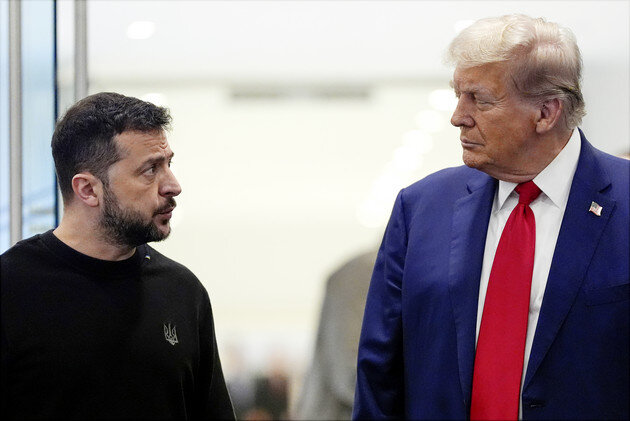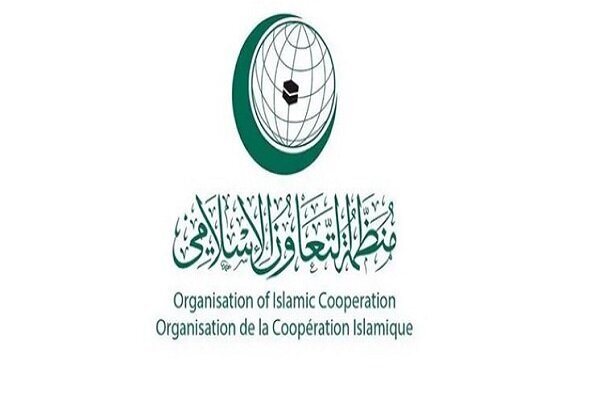Trump Labels Zelensky a ‘Dictator Without Elections,’ Accusing Him of Deceiving the US
In a recent social media post, former President Donald Trump launched a scathing attack on Ukrainian President Volodymyr Zelensky, making sensational claims about U.S. aid to Ukraine amidst the ongoing conflict with Russia. This incident raises critical questions about misinformation, foreign aid, and the geopolitical landscape.
Trump’s comments come as tensions remain high following Russia’s invasion of Ukraine in 2022. The former president’s remarks not only challenge the integrity of U.S. financial support but also cast doubts on Ukraine’s leadership during a time of crisis. The following outlines key points from Trump’s recent statements:
- Allegations of Misinformation: Trump accused Zelensky of misleading the U.S. into providing substantial financial aid, claiming that the amount reached $350 billion.
- Threat to Ukraine’s Sovereignty: In his post, Trump suggested that Zelensky must act quickly to secure his country’s future, insinuating that he could lose control without U.S. support.
- Inflated Figures: Trump’s assertion regarding the aid amount has been criticized for being exaggerated, as the actual figure is significantly lower.
- Response from Zelensky: In a rebuttal, Zelensky stated that Trump is “surrounded by misinformation,” highlighting the disconnect between the two leaders’ narratives.
Trump’s post on Truth Social stated, “Think of it, a modestly successful comedian, Volodymyr Zelensky, talked the United States of America into spending $350 Billion Dollars, to go into a War that couldn’t be won, that never had to start, but a War that he, without the U.S. and ‘TRUMP,’ will never be able to settle.” This remark not only undermines Zelensky’s leadership but also raises concerns about the former president’s understanding of the complexities of international relations.
Moreover, Trump described Zelensky as “a Dictator without Elections,” a characterization that many analysts argue misrepresents the democratic processes in Ukraine. This kind of rhetoric can have significant implications, potentially affecting public perception and international relations.
The timing of Trump’s comments is also noteworthy. They follow a series of discussions about U.S. foreign aid, particularly regarding its effectiveness and the accountability of funds given to Ukraine. Critics argue that such statements may further polarize opinions on U.S. involvement in foreign conflicts.
According to Zelensky, the ongoing war is not merely a political game but a matter of national survival. His leadership has been characterized by efforts to unify both domestic and international support against the Russian offensive. In stark contrast, Trump’s remarks could be seen as a diversion from the realities on the ground, where Ukrainian forces continue to fight for their sovereignty.
The implications of this exchange extend beyond just the two leaders. It highlights the importance of accurate information in political discourse, especially regarding international conflicts. Misinformation can lead to misguided policies and a misunderstanding of global dynamics.
As the situation in Ukraine evolves, the role of U.S. leadership remains critical. The ongoing debate about the level of support provided to Ukraine reflects broader concerns about national security, foreign policy, and the ethical dimensions of military assistance.
In summary, the exchange between Trump and Zelensky serves as a reminder of the complexities involved in international relations and the need for accurate information. As the conflict continues, it will be essential for leaders to communicate responsibly and for the public to remain informed about the realities of global affairs.
In conclusion, the ongoing dialogue surrounding U.S. aid to Ukraine and the portrayal of its leaders underscores the delicate balance of support and sovereignty in times of crisis. As we continue to navigate this geopolitical landscape, the importance of credible information and responsible communication cannot be overstated.
For further insights into U.S. foreign policy and its implications for global stability, stay tuned for more updates as the situation develops.






